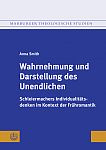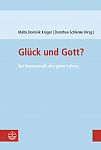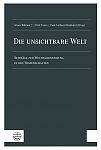European Unity and the Unity of European Churches
Matthias Grebe | Jeremy Worthen (Eds.)
The political, social and cultural dimensions of European unity are going through a period of unsettling change and challenge. Whatever direction it takes, Brexit marks a crossroad from which there is no easy return to the way things were before.
How do the churches of Europe make sense of what is happening, and how should they respond? Is the unity between them, the focus for a century of ecumenical endeavour, a strength on which they can draw, or does that unity itself face new threats?
»After Brexit?« is a vital resource for all those interest-ed in these questions, bringing together contributions from scholars and church leaders. It reviews the role of the churches in European integration as a post-war project, analyses the current political and social landscape, and identifies key issues for the future of ecumenism in Europe.
“Brexit has proved to be the most complex and polarising political and social challenge that the United Kingdom has faced since the Second World War. If it didn’t cause deep divisions, it certainly exposed them. Clearly, the consequences of such a rupture will continue to work their way out for a generation or more.
How, then, are the churches – in the United Kingdom and Europe – to respond in such circumstances? What might a ‘ministry of reconciliation' look like when any statement is taken to be partisan and, therefore, alienating to one side or the other in the debates.
This colloquium was set up to begin a conversation around these important questions. Commentators from a variety of political stances came together at Lambeth Palace to think theologically about the Brexit phenomenon, its causes and and its implications. These papers offer a first word, not the last, as Christians from diverse viewpoints and commitments attempt to have a constructive conversation about the Church’s role in the future.”
The Rt Revd Nick Baines, Bishop of Leeds.
[Nach dem Brexit? Die Europäische Einheit und die Einheit der europäischen Kirchen]
Die politischen, sozialen und kulturellen Dimensionen der europäischen Integration erleben eine Zeit tiefgreifender Veränderungen und Herausforderungen. In jeder Hinsicht ist der Brexit eine Weichenstellung, die eine Rückkehr zu früheren Verhältnissen nahezu unmöglich macht.
Wie sollen die Kirchen in Europa diese Entwicklungen interpretieren und wie darauf reagieren? Ist die Einheit zwischen den Kirchen – die den Fokus auf die ökumenische Zusammenarbeit legt – ein Plus, von dem sie zehren können, oder wird diese Einheit erneut in Frage gestellt?
»After Brexit?« ist eine reichhaltige Ressource für alle, die sich für diese Fragen interessieren, und beinhaltet Beiträge von Akademi-kern und Kirchenleitenden. Das Buch hinterfragt die Rolle der Kirchen bei der europäischen Integration als einem Nachkriegsprojekt, analysiert die aktuelle politische und soziale Situation und identifiziert Schlüsselthemen für die Zukunft der Ökumene in Europa.






